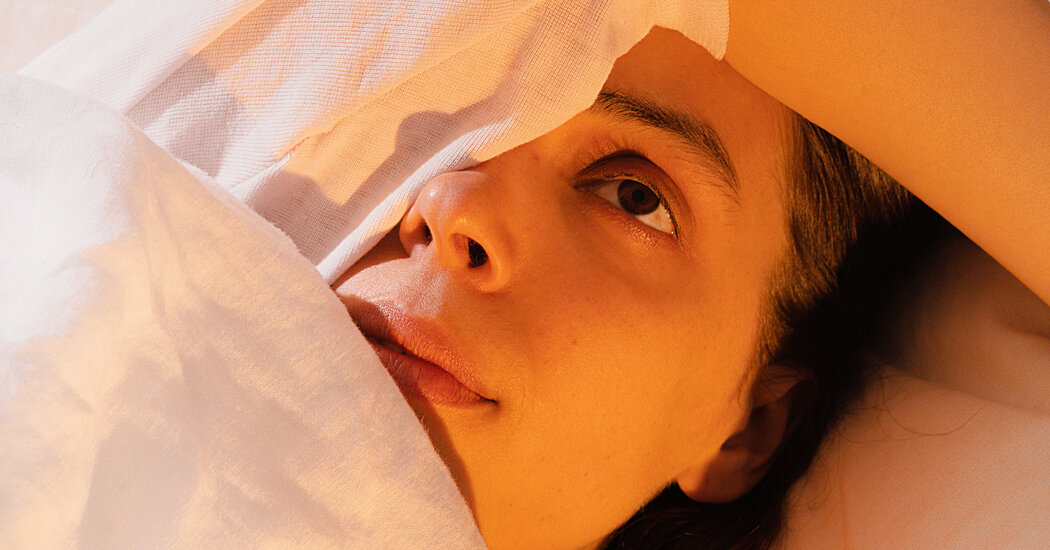When the house is freezing and it’s still dark outside, it feels reasonable, even noble, to relish extra minutes in bed.
On TikTok, some celebrate this cozy morning loafing as “hurkle-durkling,” referencing an old Scottish phrase for spending idle time awake in bed. Whether you want to huddle under the blankets and hurkle-durkle — or, like some TikTok users, you just seem to enjoy gleefully saying the phrase — the trend is a reminder that it’s OK to reclaim a bit of leisure time.
Why it feels so good to lean into lounging
Staying in bed after you wake up is appealing because we crave agency, said Eleanor McGlinchey, a sleep psychologist at Manhattan Therapy Collective and associate professor of psychology at Fairleigh Dickinson University. Much like “revenge bedtime procrastination” — the act of staying up too long to make up for the hours you spent working or caring for others during the day — lolling about in the morning is front-loading that “me” time before responsibilities invade. Any parent can attest to how savagely the veil between sleep and packing lunches is torn. Who wouldn’t prefer a cup of coffee and a fluffy pillow to answering “Have you seen my soccer uniform?”
(Of course, the people who likely most need a hurkle-durkle can least afford to indulge.)
For those who do take part, it’s important to set limits. Quality time for yourself can slip into something more detrimental — such as a mindless hour or even longer on social media (perhaps looking for more Scottish inspiration to stay in bed).
“For some people, picking up their phones and scrolling email or turning on the news while in bed makes them more stressed,” Dr. McGlinchey said. “So now you’ve lazed around in bed and feel worse.”
So plan ahead for how you want to spend your free minutes in bed.
“I tell people to do whatever they are going to do on purpose,” Dr. McGlinchey said. “Don’t be at the mercy of notifications that come in overnight. Be intentional with the time.” If answering a few urgent emails from bed lets you relax a bit without worrying about diving right into work, for example, it’s a net positive.
“It’s important to have a say in how your day starts, especially for people who, as soon as they get out of bed, are on call as caregivers,” she said. “But give yourself a certain amount of time. Journal. Listen to music.”
People who struggle with insomnia or have other health conditions that affect their sleep may try to go to bed earlier, even if they aren’t sleepy, or lie in bed awake in the morning in an attempt to get rest. But that can be a mistake, because “your body learns to be in bed awake,” said Dr. Alcibiades J. Rodriguez, a neurologist and medical director of the Comprehensive Epilepsy Center-Sleep Center at NYU Langone Health.
Is there an acceptable limit to my loafing?
There is no hard and fast rule about how long is too long to huddle under the covers after you wake up, but if this happens daily, 15 to 30 minutes should be enough for most people. “If you wake up and feel good and this is part of your routine, you don’t have to stop,” said Dr. Marjorie Soltis, a sleep medicine specialist and an assistant professor of neurology at Duke University School of Medicine. “But I think 30 minutes is a good threshold.”
Lounging in bed is not a substitute for sleep. “But you should listen to your body,” she said. “If you feel better after resting a bit, you may be getting some benefit, even though it’s not the same as sleep.” People who can linger in bed without work or family pressure, or who need the extra time for health reasons, should do so without shame, experts said.
That even goes for bed rotting, another TikTok trend with a less appealing name. Bed rotting — when you lounge in bed all day or even all weekend — can still be harmless in moderation. “If you want to stay in bed for the day because you are feeling burnout, do it, and don’t feel bad about it,” Dr. McGlinchey said.
“But if it starts to make you feel depressed or anxious or leads you to call out of work and become less functional, then you need to pull back.” For some people, consistently staying in bed for hours, or going back to sleep, can be a sign of depression. You also need light exposure to maintain your circadian rhythms.
Generally speaking, though, lounging in bed can be time well-spent. Keep it short if you can and do something you enjoy. For healthy sleepers, Dr. Rodriguez said, “enjoying your bed is a good thing.”







